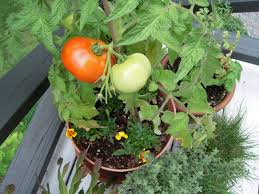
When talking about food – there is food and then there are pesticide-laden foods. Pesticides are hormone disruptors that can cause breast cancer. Many pesticides contain organochlorines – combinations of chlorine and carbon that cause breast cells to mutate and grow.
The food production industry has seen tremendous growth in the past 50 years, yet the cost of organic foods are often astronomical and not accessible to the general population. With the subsidization of pesticide and monocrops by governments, healthy food is still unaffordable to many. Transitioning to an organic diet can seem like a hefty task.
Here are suggestions on how to transition to organic on a budget:
- Get to know when your local markets and farmers’ markets take place. Pay special attention to some Korean grocery stores. They sometimes sell organic for less. Talk to the farmers to learn which grow organically.
- When possible go local. Local food will often taste better and be less expensive that exotic fruit.
- Buy what’s in season. Organic berries in the winter are far more expensive and less flavorful than when they are in season. Stock up during picking season and freeze them yourself for winter months.
- Find out what food programs are available in your area.
- Consider buying shares in a farm. Get to know farmers and what CSAs deliver in your area. One of my favorites in Toronto is Wanigan Farms. www.wanigan.com They’ll deliver weekly, biweekly or monthly and deliver it to your door.
- Join a food co-op. Become an active member of your local food co-op. Not only can it enhance your sense of community, the food often costs less than the organic section at your local market. We can also order items like oatmeal flakes in bulk.
- Grow a small garden. Fresh herbs for cooking and tea, tomatoes, berries, root vegetables, spinach and kale are some of my favorite foods to grow. Lettuce, spinach and other leafy greens can be grown throughout the summer and into the fall months. Rosemary and Greek Sage can be grown indoors and outdoors and consumed as a tea to strongly inhibit breast cancer.
- Reduce your consumption of high spray foods. Some foods are more highly sprayed than others. If your budget doesn’t allow you to buy everything organic, consider purchasing fruits and vegetables that can be peeled and avoid foods like potatoes, berries, grapes, peaches and other high spray foods. Ensure that you wash them well before consuming. For more information about the dirty dozen and clean fifteen foods visit http://www.ewg.org/foodnews/summary.php.
- Reduce your consumption of animal products or become vegetarian or vegan. Improve your health and the health of your family by eating lower on the food chain (fewer contaminants) and a more alkaline diet.
- Grow your own sprouts. It’s easy and only takes a few days. Your sprouts will stay fresher longer and be much less expensive than buying them at the store. Broccoli seeds, red clover, chick peas, lentils and other grains, beans seeds can be sprouted. Avoid kidney bean sprouts, they are toxic when eaten raw.
- Eat more grains and legumes. Soak and prepare them yourself instead of buying them in a can.
- Do your own canning. We’re planning on canning our own tomatoes and peaches this summer. It’s fun to do and well worth the effort come cold winter months.
It’s my belief that we cast a vote with every purchase that we make. Access to affordable fresh and healthy food is a basic human right. Let your government know that pesticides must go. Share your tips with us on our Facebook page.



